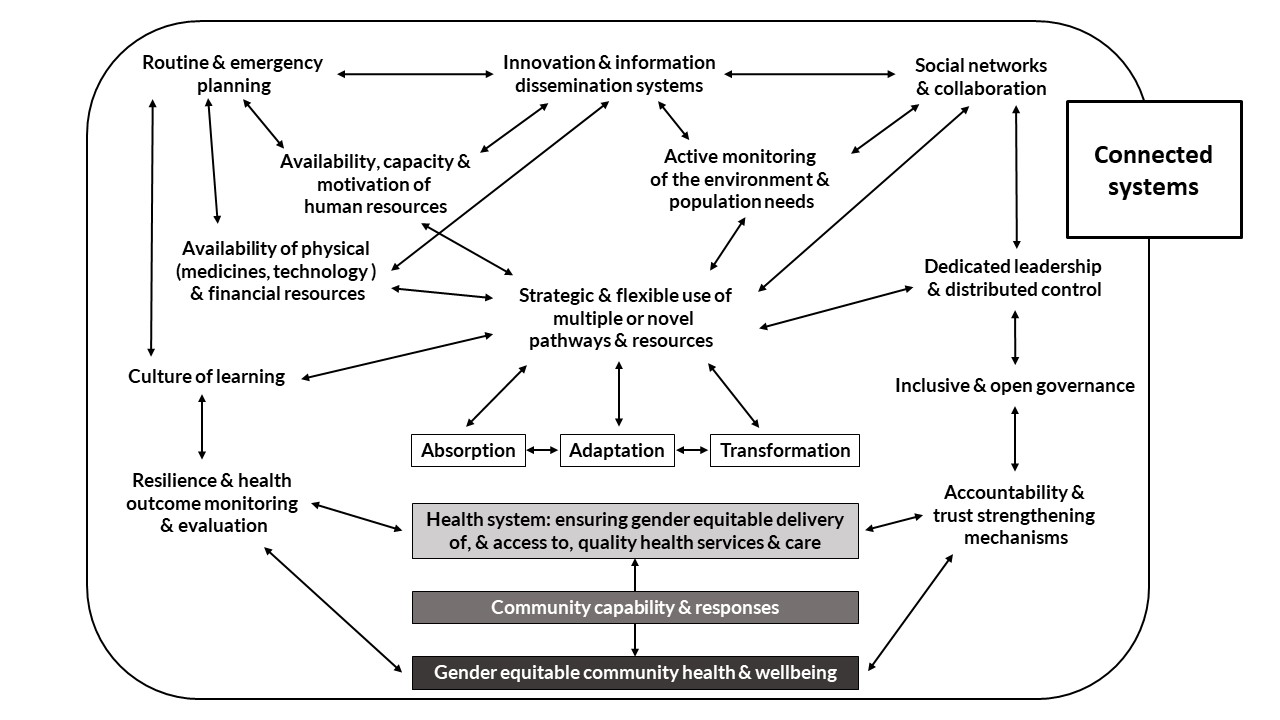Image: Ashim Shrestha, 2020
ReBUILD for Resilience – resilience framework

An accessible Microsoft Word version of this framework can be downloaded here.
Our resilience framework is our model of feedback loops which tries to map how health systems can manage shocks. We use the framework to help examine the capacities which underlie resilience and how these can be built and maintained to create responsive, effective, inclusive, gender-equitable and sustainable systems. We also referred to the framework when specifying our ten hypotheses on resilience for discussion, elaboration, testing and refinement over the course of ReBUILD for Resilience. You can read those hypotheses and also explore our theory of change and research questions here. There is also a short essay on the framework’s development here.
As our research progresses we are regularly re-evaluating this framework. This latest iteration is more explicit than the previous version about the dynamic interactions between different capacities, and also builds in more recognition of the critical interaction of community and health system. In addition, in recognition that the health system is not closed but is in constant interaction with the wider economy, the global environment etc, we have added a connection to wider context of public and private systems.
Further information
Professor Sophie Witter was an author of a Lancet Global Health paper on resilience definitions, conceptualisation, critiques, measurement, and capabilities – you can read it here [opens a new tab].